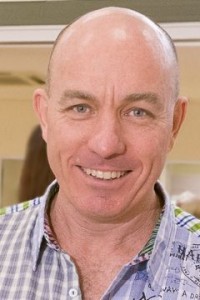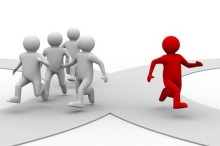Heroin addiction often leads to changes in a person’s relationships, lifestyle, physical and psychological health, values, and identity. Some heroin addicts engage in criminal activity to maintain their habit. Heroin addicts are stigmatised by wider society. (5,643 words) *
‘Lost Connections’ by Johann Hari
 One of the most interesting books I have read on mental health is Lost Connections: Uncovering the Real Causes of Depression – and the Unexpected Solutions by Johann Hari. Johann points out that depression is NOT caused by a chemical imbalance in the brain, as is argued by drug companies and many biologically-oriented psychiatrists and doctors.
One of the most interesting books I have read on mental health is Lost Connections: Uncovering the Real Causes of Depression – and the Unexpected Solutions by Johann Hari. Johann points out that depression is NOT caused by a chemical imbalance in the brain, as is argued by drug companies and many biologically-oriented psychiatrists and doctors.
Moreover, there is little, if any, scientific evidence that ‘antidepressants’ alleviate depression. [Some credible scientists suggest they give a temporary relief to a minority of users.] Johann talks about social factors that cause depression and considers new socially-related ways of alleviating the problem.
Johann describes seven forms of disconnection that cause depression:
‘Patient Centred-Care Doesn’t Go Far Enough: We Need Patient-Perspective Care’ by Tim Carey
 An excellent article by Tim Carey on Mad in America.
An excellent article by Tim Carey on Mad in America.
‘A growing appreciation of the importance of involving people in their own health care has seen the development of initiatives such as “patient-centred care.” Patient-centred care has been defined as “providing care that is respectful of and responsive to individual patient preferences, needs, and values, and ensuring that patient values guide all clinical decisions.” (Institute of Medicine, 2014)
While this definition seems reasonable enough, it appears to be very difficult to translate into practice; particularly in the area of mental health.
It is not always clear in mental health, for instance, that it is patients’ values that guide all clinical decisions. I experienced some of this when I began to develop a system of mental health service delivery which I came to call “patient-led” treatment.
‘Recovery in an Age of Cynicism’ by Bill White
 ‘There’s something happening here
‘There’s something happening here
But what it is ain’t exactly clear
There’s battle lines being drawn
Nobody’s right if everybody’s wrong”
For What It’s Worth, Buffalo Springfield (1966)
Lyrics by Stephen Stills
Recovery in an age of cynicism requires seeking the less traveled path.
We live in a strange era. Pessimism seems to be seeping into every aspect of global culture – fed by leaders who divide rather than unite, who pander rather than educate and elevate, and who ply the politics of destruction to mask their own impotence to create.
Poisoned by such cynicism, we as a people act too often without thinking, speak too often without listening, and engage too often to confront and condemn rather than to communicate, until in our own loss of hope, we lapse into disillusioned detachment and silence – shrinking our world to a small circle we vow to protect.
Sharing Culture: Healing Historical Trauma
Yesterday, I began promoting a new website that I have launched with two colleagues, Professor Marion Kickett and Perth filmmmaker Michael Liu. Here is what we have said on the home page of the website:
‘What is Sharing Culture?
Sharing Culture is a unique initiative to empower Aboriginal people to heal and develop resilience to historical trauma and its consequences. These consequences include poor physical health, mental health problems, drug and alcohol addiction, violence, abuse and suicide.
Sharing Culture is based on the core values of authenticity, connection, courage, creativity, empathy and forgiveness.
Marion’s Story: ‘My Spirituality’
Marion’s spirituality is very important to her and is central to everything else that matters in her life.


